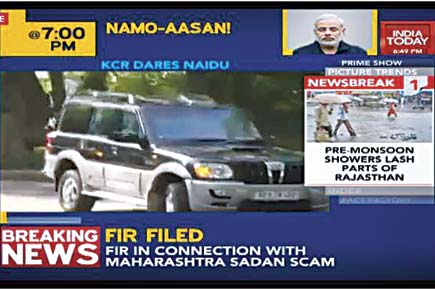Media, especially news media, is ‘difficult’ to analyse on most days

 Media, especially news media, is ‘difficult’ to analyse on most days. What adds to the complication is the negativity around everything to do with media - within and outside of it. One part of it is the falling standards of news television in India. The other is unfathomable.
Media, especially news media, is ‘difficult’ to analyse on most days. What adds to the complication is the negativity around everything to do with media - within and outside of it. One part of it is the falling standards of news television in India. The other is unfathomable.
Yesterday India Today TV (the erstwhile Headlines Today) beat Times Now to become the most watched English news channel in week 22 of this year going by Broadcast Audience Research data. English news is a pea sized market at 0.04 per cent of all TV viewing in India so the shuffling of ranks is really not critical. However, I was interested because India Today had reportedly used dual frequency - that means it had chosen to be on two points instead of one on about 70 cable networks in India. This helped it reach more people, increase sampling and therefore get better ratings. It is a perfectly valid tactic used by other channels.
ADVERTISEMENT

Within news media firms, the whole narrative about itself is negative. Little wonder, then, that it is negative outside too
The question of course is whether it can sustain this there is a 50 per cent premium on carriage costs to be on two channels. When I started talking to India Today, through its PR firm, I was put through a grinder. Why was I focusing on distribution? There were calls to other people I had spoken to and so on. The entire ridiculousness of a media organisation trying to control the analysis of a story on its performance was lost on the people involved.
In April this year, DNA and Tehelka did a story on how Rajya Sabha TV had allegedly blown R1,700 crore of taxpayer money in four years. It takes about R50-65 crore to set up a news channel and about R25-30 crore a year to run it, depending on language and distribution costs. How on earth could a standalone channel, whose primary job is televising Rajya Sabha proceedings have done it?
It hadn't.
Going by the Union Budget website the total money spent by the Rajya Sabha and its Secretariat, of which RSTV is a part, is almost R1,000 crore over 2010-2014, the four years in question. I grilled the CEO of Rajya Sabha TV, Gurdeep Singh Sappal for over two hours. He shared every figure I asked for, every query that auditors had made of RSTV and lots of data that I was frankly not interested in. The bottomline RSTV had spent Rs 147 crore in those years and about R206 crore till March 2015.
Where, then, had the Rs 1,700 figure come from? Allegedly from a draft report of the Comptroller and Auditor General of India or CAG. This report however was not available on the CAG website or with RSTV. The two publications had been slapped with a breach of privilege notice by 60 (Rajya Sabha) members of parliament across 14 different parties by the time I got into the story.
DNA did not respond to my queries officially. Unofficially I was berated for questioning the story. Tehelka was very open and said it stood by its story. It would do more stories on ‘appointments’ to RSTV. (Note - in April, lawyer Prashant Bhushan had filed a Public Interest Litigation over irregularities in appointments to the Rajya Sabha Secretariat, which includes RSTV, a story I did not follow.)
Largely, most people I spoke to, assumed that things must be wrong because it is RSTV and it is the government. Many media experts who said RSTV’s discussions were better than those on private channels did not want to be quoted!
Some time back, NDTV was running a series of very interesting documentaries on issues facing India. Some of the discussions on Lok Sabha TV make one sit up and think. RSTV, Lok Sabha TV and Doordarshan, in their own way, attempt different things which may or may not work. RSTV’s film Samvidhaan:The Making of the Constitution of India has encouraged it to commission more such films on Subhash Chandra Bose, Sufi reformers or science in music among other things.
However there is, within private and public sector media, no encouragement no hurrahing for attempts being made at raising the level of news and debates. There are however millions of voices willing to criticise, to pull things down.
Time then to focus on the positives of having a free albeit imperfect media.
The writer is a media specialist and author. Follow her on twitter at https://twitter.com/vanitakohlik
 Subscribe today by clicking the link and stay updated with the latest news!" Click here!
Subscribe today by clicking the link and stay updated with the latest news!" Click here!







